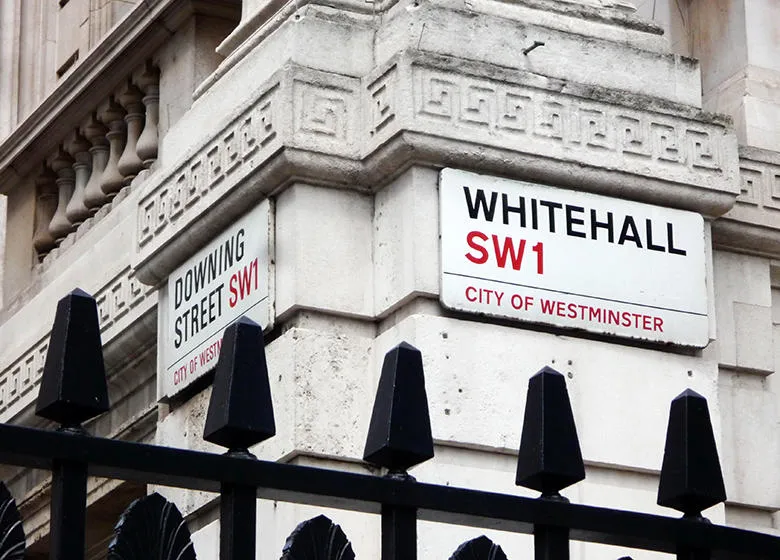Moving the capital of a country is a powerful symbol. But experience suggests that it rarely changes the concentration of economic and political power.
Lord Nicholas Macpherson
24 July 2019
The case against further devolution
Lord Nicholas Macpherson
NICHOLAS MACPHERSON: While London's economy goes from strength to strength, little is being done to boost growth in the UK's regions

This piece was originally written for the Policy Institute's new Policy Review publication, which features essay contributions on a range of different issues by the institute’s researchers and Visiting Faculty.
Read the full collection of essays.
Moving the capital of a country is a powerful symbol. But experience suggests that it rarely changes the concentration of economic and political power. Look at Brazil. Has Brasilia ever challenged the dominance of São Paolo and Rio de Janeiro. Similarly, Nigeria. Abuja has never challenged the dominance of Lagos and Kano. And so Jack Brown is right to see removing London’s capital status as a side-show.
He is also right to see the issue of where Civil Service jobs reside as a second order issue. I was running the public spending side of the Treasury when Sir Michael Lyons conducted a review of how many jobs should move from London to the regions of the UK. The case for moving jobs was strong. The cost of office space in central London was far higher, and in the absence of regional pay scales it was much easier to retain staff in the North East than in Whitehall. And so the Lyons Review resulted in a sensible transfer of posts, such as the movement of the Office for National Statistics to Newport.
But I was under no illusion about its ability to make local economies more dynamic. The fact is that it is the private sector which ultimately creates income and wealth, and those regions which do best are the ones which attract skills and capital and create conditions for innovation and enterprise. It is no coincidence that universities play a central role in city regions’ success, and that towns that are not big enough to support a university – Rotherham and Barnsley, for example, tend to struggle.
And in so far as national wage rates in the public sector are higher than local private-sector wage rates, the public sector will tend to absorb too much of the local skill base. If the public sector was the key to regional prosperity, Northern Ireland would be the richest region in the UK.
I am not against moving the Treasury to Liverpool or the Bank of England to Birmingham, as has sometimes been mooted. But I fear it will change little.
Jack Brown’s solution is to devolve more power to a local level. And I am sympathetic to his proposals. But that raises age-old questions about how much power and to what locality.
It’s easy when it comes to the nations of the United Kingdom. Scotland and Wales are all historic entities with different traditions; Northern Ireland is younger and its antecedents more ad hoc but its border is no less real as the debate about the “backstop” has underlined. London was a coherent entity long before Dick Whittington became Lord Mayor, albeit one which has grown steadily in size and sprawl over many centuries.
But as you get outside London things get altogether more difficult. England does not have a Parliament. Yet Westminster presides over one of the most centralised states in England. Attempts to create regional government failed at its first fence – the referendum to set up a north eastern regional assembly in 2004 voted “no” by a convincing 78:22 majority.
Local authorities have more legitimacy. But the complex history of boroughs, counties and the two-tier nature of much of local government provides few clues as to what constitutes the right political and administrative entity. In any case, much of central government activity over the last 40 years has been about reducing local accountability. Local education authorities are a shadow of their former selves, and a long history of rate- and now council tax-capping mean that local authorities have little room for manoeuvre when it comes to determining overall levels of expenditure. The fact that local electorates show little sign of caring about the emasculation of local authorities is grist to central government’s mill.
I look back with a nostalgia on the debate on devolution fostered by Gordon Brown as Chancellor and Prime Minister. Reformers alighted on the city region as the best way forward, drawing on analysis when David Miliband was Secretary of State for Communities and Local Government. More recently, George Osborne and others leapt on this bandwagon, harnessing the ambitions and record of civic leadership in Manchester to hold out the hope for a new form of devolution.

So far so good. But few city regions have been as easy to define as Greater Manchester. Is Yorkshire a region, or an amalgam of city regions led by Sheffield and Leeds? In which case what does that mean for North Yorkshire? What about rural areas which have historically seen themselves as the antithesis of the city?
And what about democratic legitimacy? The Blair and Cameron governments favoured democratically elected mayors, influenced by the US model. But many people prefer the proximity of local councillors. Mayors are by their nature remote.
And what powers are they going to wield? As well as centralising powers over education in the name of decentralisation, successive governments have been reluctant to put police accountability in the hands of local authorities, hence the move to police commissioners.
And more important still is the question of what tax-raising powers city regions are going to be given. The democratically elected politicians in Westminster, and the unelected officials in Whitehall who advise them, guard their tax-raising powers jealously. The council tax is a pale imitation of the domestic rates, and the failure to revalue properties since 1991 has made its incidence uneven and incoherent. Business rates continue to be determined at a national level. Successive governments have taken modest steps to incentivise localities to generate more revenue from economic development. But the measures have not gone far enough. And attempts by Michael Lyons and others to broaden debate about taxation to include local income taxes as well as a more coherent property tax regime have been given short shrift by Westminster.
Disappointingly, the current government has shown scant interest in devolution of power and I don’t expect it to feature much in the forthcoming leadership election, where I expect the leading candidates to celebrate Brexit as a way of increasing the power of Westminster rather than an opportunity to increase the powers of the devolved governments, or cities or local authorities.
And so Jack Brown’s hopes that we can move to a more nuanced form of devolved government in England are likely to be disappointed. In the meanwhile, London is likely to go from strength to strength, buoyed by the legitimacy of its governance. To all intents and purposes, London is another country.
Lord Nicholas Macpherson was Permanent Secretary to the Treasury from 2005 to 2016, and is now a Visiting Professor with the Strand Group, at the Policy Institute, King’s College London.
